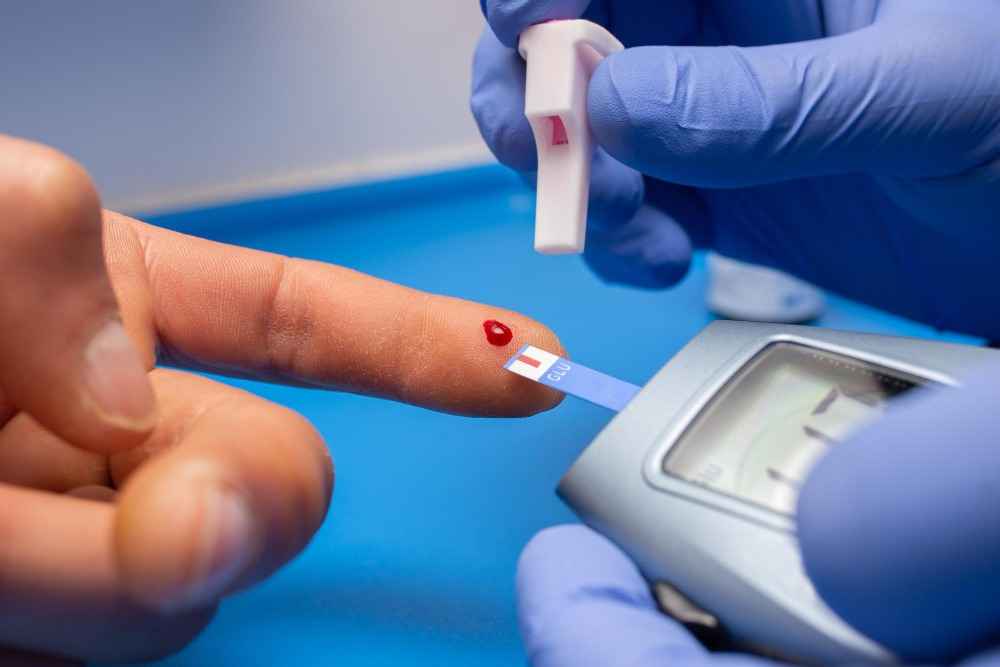Understanding The Different Blood Tests for Diabetes

Medically Reviewed By
Dr. Ragiinii Sharma
Written By Meenakshi
on May 12, 2023
Last Edit Made By Meenakshi
on Jan 23, 2025

Have you been experiencing increased thirst, unintended weight loss, increased appetite, frequent urination, or tingling sensation in your feet or hands? It could be diabetes. Yes, you read that right. Diabetes is a chronic medical condition that occurs when the pancreas' normal functioning of making insulin, or how your body responds to it, is disrupted. Some people instantly develop the symptoms, while others may develop gradually and go unnoticed until later in life. That’s why it is essential to measure & monitor your blood sugar levels, especially if you are aging or are at a higher risk of getting diabetes than healthy individuals. Early detection is the key to managing diabetes, so don’t wait for the symptoms to appear. Get tested in time to take control of the condition. For early detection & constant blood sugar monitoring, your doctor may suggest different Blood Tests for Diabetes.
Diabetes Testing For Early Diagnosis And Better Management
Individuals living with diabetes must already know the types of blood tests for diabetes that are available to diagnose and manage the disease better. For those who don’t know, blood tests help check for high blood sugar levels, diagnose diabetes, or help control it well at an early & treatable stage. Now what are those tests, and what purpose do they serve? Since there are so many tests available so understanding all can be overwhelming. Worry not! In this blog, we have broken down all the tests in a way that’s easy to understand and helps you take charge of your condition. But before understanding the test, it is essential to know who may need blood tests for diabetes. Scroll down to find.
Who Are Eligible For Blood Tests For Diabetes?
You may need a Blood Test for Diabetes if:
- You are overweight or obese.
- You have high blood pressure, high cholesterol, or other chronic diseases.
- You have a family history of gestational diabetes or diabetes.
- You have a history of cardiovascular disease.
- You are 45 or above.
Apart from the above risk factors, individuals exhibiting symptoms related to diabetes are eligible to get tested to diagnose the condition early and take charge of it before it turns complicated.
Now the question is, what are the tests that help diagnose & manage diabetes? The answer is in the points below. So, keep scrolling to understand all about the tests.
Different Blood Tests For Diabetes:
- Fasting Blood Glucose Test (FBG): Fasting Blood Glucose Test, also called, FBG Test, is a blood test that measures glucose levels in the blood after overnight fasting for at least 8 hours. It is a simple and quick test that helps diagnose diabetes and prediabetes. If you have a family history of diabetes or have symptoms, your doctor may suggest a fasting blood glucose test to determine the cause and provide appropriate treatment.
- Post-Prandial Blood Glucose Test (PPBG): It is no secret that certain foods influence our blood sugar levels, and PPBG Test helps measure glucose levels, particularly 2 hours after a meal. Post-Prandial means after a meal, and the Post-Prandial Blood Glucose Test looks for how your body responds to sugar & starch after a meal to help doctors detect diabetes & prediabetes. Healthcare practitioners often recommend this test to diagnose diabetes (in conjunction with other tests) and monitor blood sugar levels in people who have already been diagnosed with diabetes.
- Random Blood Glucose Test (RBG): As the name suggests random, the RBG Test is often performed regardless of when the person last ate. The significant difference between FBG & RBG Test is that it requires no fasting and can be done at any time of the day to diagnose diabetes or to measure glucose levels in the blood.
- HbA1c Test: Another blood test for diabetes is HbA1c Test. Also called A1c Test, Hemoglobin A1c Test, or glycated hemoglobin test, this test measures average glucose levels in the blood over the past 2-3 months. It is recommended for individuals with diabetes to see if their levels are within the range or if adjustments to their diabetes medicine are required.
- Oral Glucose Tolerance Test (OGTT): Your blood sugar levels can tell much about your health. An OGTT Test looks at how your body handles sugar from foods to determine the risk for diabetes or diagnose gestational & type 2 diabetes to help with its management. It looks for the way your body processes glucose after drinking glucose. The earlier you get diagnosed, the easier it will be to manage the condition with minimum complications.
- Lipid Profile Test: Individuals who have already been diagnosed with diabetes are at higher risk of developing heart disease. Hence, doctors often suggest a Lipid Profile Test measure & monitor varied fats in the blood or lipid levels in people with diabetes.
- Serum Creatinine Test: It is another crucial test suggested to patients with diabetes to detect early signs of kidney damage and other diseases. If creatinine levels in the blood are higher than usual, it indicates kidney damage which can be one of the complications of diabetes.
- Urinalysis Test: It is essential to understand that the Urine for Routine Microscopy Test doesn’t help diagnose diabetes but monitors the kidney function in people with diabetes. Diabetic patients must check kidney functions to detect problems early and prevent severe complications.
- Urine for Microalbumin: Elevated blood sugar levels are unhealthy and can damage the kidney over time and even lead to kidney failure if left untreated. Thus, individuals with diabetes should take a Urine for Microalbumin test to screen for early signs of kidney damage to prevent further damage and ease symptoms & complications.
- Insulin Test: Apart from diagnosing insulin-related problems, insulin tests monitor insulin levels in individuals with diabetes and undertaking insulin therapy. It helps doctors plan and prescribe the appropriate insulin dose and check whether the diabetes is well-managed. This simple blood test can unveil how your body produces and uses insulin.
- C-peptide Test: If you have been diagnosed with diabetes and are on insulin therapy, C-peptide Test helps determine whether enough insulin is produced in the body or insulin needs to be injected into the body. This test helps distinguish type 1 & type 2 diabetes, diagnose insulin resistance, determine the cause of low blood glucose levels & monitor insulin production.
- Insulin Autoantibodies Test: Insulin Autoantibodies Test is a blood test that looks for antibodies your body produces against insulin. It detects type 1 diabetes and helps distinguish type 1 diabetes from other diabetes.
Each blood test for diabetes is vital for diagnosing, monitoring & managing diabetes. Apart from early diagnosis or regular monitoring, these tests help track the fluctuations in the blood glucose levels to ensure optimal management of the condition while helping prevent complications. Your healthcare professional may observe your symptoms and consider your medical history and other factors to suggest a blood test for diabetes.
Redcliffe Labs is the best Omnichannel Pan India diagnostic service provider that you can count on for Blood Tests for Diabetes. Whether you are looking for a single blood test for diabetes or a Diabetes Profile- Comprehensive, we are the diagnostic lab for you to reach. Book your test with us to get tested comfortably from your home.



